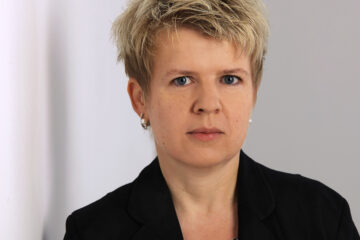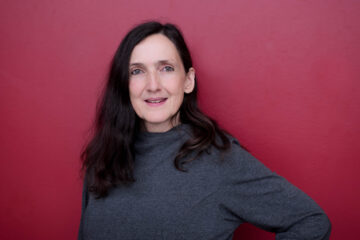51. Innsbrucker Gender Lecture
Gender & Peace Building
Beyond the Question of Inclusion & Exclusion
Zahra‘ Langhi, Co-founder and the CEO of the Libyan Women’s Platform for Peace
Comment: Josefina Echavarría Alvarez, Unit for Peace Studies, University of Innsbruck
Moderation: Lena Drummer, Research Platform Gender Studies & Doctoral Program Dynamics of Inequality and Difference, University of Innsbruck
During time of war and armed conflict, women continue to bear the brunt of causalities, gender-based violence and livelihood insecurity. Despite the unanimous UN adoption of Resolution 1325 calling for the increase in women’s representation in conflict management and resolution, little has been done to enforce and implement it. Overall, women play a limited role within the peace building process and peace negotiations. Looking into the three examples of Libya, Syria and Yemen in the UN led peace negotiations, what is noticed is that there is a lot of talk and literature about including women in the peace process. However, most of the discussion centers primarily around women’s inclusion or exclusion. When it came to practice in these countries, women were lucky if they were included in a secondary track with no mandate as in the case of Libya or included in an advisory board to the UN mediator as in the case of Syria. Their inclusion was mostly symbolic. A cloth of the table of negotiation! Most of the negotiation literature treats women primarily as an object of inclusion or exclusion and the decision to include or exclude is left to the male mediators or the powerful male negotiators. Women’s inclusion remains to be instrumentalised to tick the box and to make political gains and propaganda. Women in these UN led peace processes were not perceived as actors in their own right. Rather they are perceived as passive objects of inclusion or exclusion. The debate and the practice have not gone beyond that to understanding the variety of ways in which women can participate and how they can change and influence the process by introducing a new vision to the table of negotiation and/or by the community based constituency they represent. It’s time for a change to the “inclusion” debate. UN missions and programs on Women, Peace and Security must be evaluated on the basis of whether they enable women to broaden their potential for political mobilization, such that they can build sustainable peace and inclusive security.
Zahra‘ Langhi is a Co-founder and the CEO of the Libyan Women’s Platform for Peace, a socio-political movement which aims at peace building, inclusivity and gender equality. Also she participated in the UN led peace process. She was also advisor to the Libyan National Dialogue. In her research she focuses on topics of peace building, women’s leadership, Middle Eastern history, metaphysics, mysticism and female spirituality in comparative religions.




















